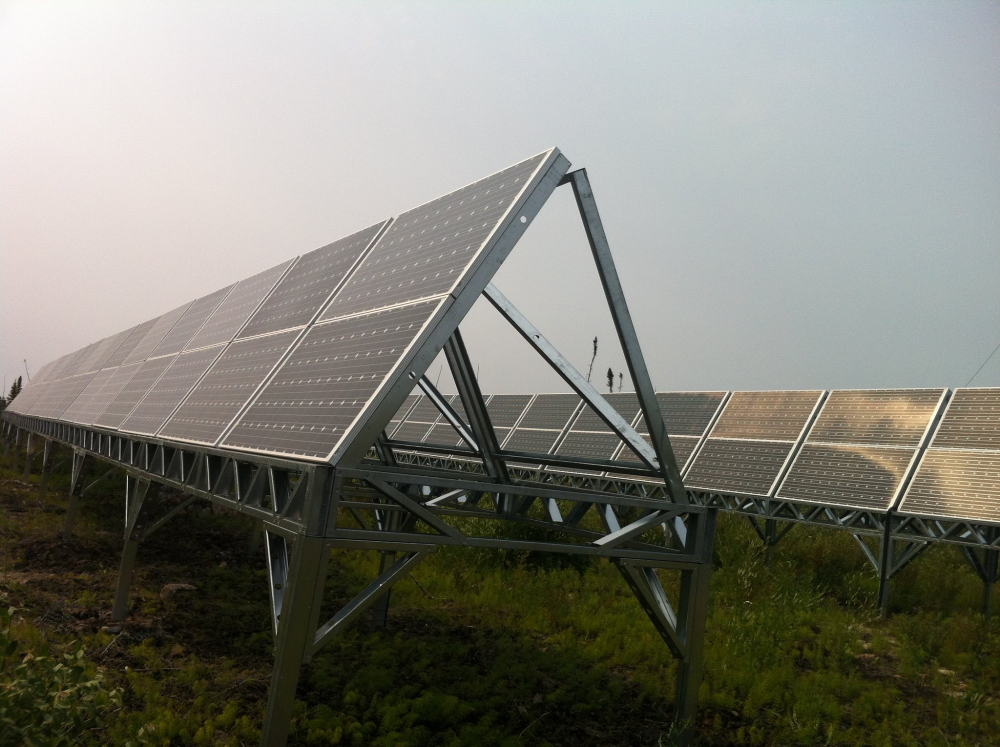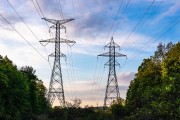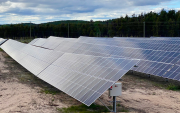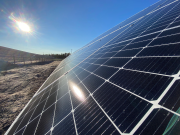This is the fifth publication in Remote Communities Energy in Transition, a series about challenges, opportunities, and solutions in integrating renewable energy into remote communities’ microgrids. These publications cover the advancements in technical, financial, and human capacity, energy policy, and regulations needed to transition remote communities to clean energy. For more publications, visit our Renewables in Remote Communities website.
The COVID-19 pandemic has underscored the interconnectedness and fragility of our healthcare and economic systems, bringing a new awareness to the essential services we depend on for medical support, food and fuel, as well as to the social interactions we thrive on. In this crisis, the primary need is to protect Canadians’ health and livelihoods, and we applaud the ongoing response from all levels of government, and front line workers to keep Canadians safe.
Next, whenever that may be, is the rebuilding stage. This is the moment to create a roadmap for a society that is more resilient to these macro shocks – whether they are brought about by a pandemic or climate change. Globally, we’re seeing inspiring responses to the pandemic. Bold action from the New Zealand government is showing us how it can be done, with recovery efforts being tied to growing green jobs. Here at home, governments are still responding to the immediate crisis, but they are also starting to do the necessary thinking about how we will rebuild Canada’s economy when we finally manage to flatten the curve. Civil society and Canadian companies across sectors are voicing the need for a resilient recovery. The funding to sustain jobs in the energy sector while cleaning up the environment and reducing GHG emissions and the Large Employer Emergency Financing Facility (LEEFF) program are two recent announcements that signal the federal government’s intention to meet the moment and rebuild a stronger Canada.
A thoughtful economic rebuild needed
The Pembina Institute has made it clear that Canada’s response to this pandemic must support a more resilient, healthier economy that is competitive and shows economic strength in a decarbonized global market. Our Green Stimulus recommendations outline our principles and top recommendations for rebuilding Canada that moves us closer to a low-carbon future while growing the job market.
The need for a thoughtful economic rebuild that makes us more resilient is even more urgent for remote communities across Canada.
The need for a thoughtful economic rebuild that makes us more resilient is even more urgent for remote communities across Canada. These isolated communities – the majority of them with Indigenous populations – are already experiencing severe challenges and inequality, from limited health care and fragile supply chains for their food, health, energy, and infrastructure. As the different levels of government look at stimulating our economy, it must be done in a way that increases ambition and efforts to safeguard the well-being of remote communities against the existing health, social and economic threats that this pandemic has exacerbated. The fundamental lens for this change is localization — building local economies for resilient remote communities. The recently announced increased infrastructure support from the federal government, from 75 to 100 per cent of the cost of projects in the territories, can go a long way to meeting these goals.
How energy needs are provided for in communities and the role energy plays is critical, and the solutions are fundamental components of building local economies. Like the COVID-19 health framework outlined by the B.C. government that is helping to address health inequality in these rural and remote communities, drastic action to address the energy inequalities and energy poverty in remote communities elsewhere in Canada must also be taken.
The federal government’s commitment to eliminate diesel-power electricity in northern and remote communities by 2030, the Government of British Columbia’s action on diesel reduction in remote communities, and the Government of Yukon energy utility’s signal that diversifying the territorial electrical grid with renewables is in the plans, are all examples of launching pads for serious energy transition. The commitments are there – and now meaningful implementation plans and actions are needed. For remote communities to advance diesel reduction, any involvement from provincial, territorial, and federal governments needs to be led by the principles of meaningful engagement with Indigenous communities. Terms like reconciliation and decolonization will lose their meaning if they’re not accompanied with respect for Indigenous relationships, Indigenous rights and title, nation-to-nation dialogue, and guided by the principles of UNDRIP and the Truth and Reconciliation Commitment of Canada Calls to Action.
There are good examples that can be looked to. Economic reconciliation looks to find ways to transition ownership and control, and is an example of a framework that can be used to create economic and social opportunities for clean energy systems in remote communities. In its recently released final report on the findings of the Indigenous Utilities Regulation Inquiry, the B.C. Utilities Commission identified some potential opportunities to transition energy ownership and economic development to Indigenous communities.
Recommendations for a clean energy transition in remote communities
While considerable progress has been made over the past few years toward the clean energy transition in remote communities, much work lies ahead. To get us closer to this important goal, we are sharing five recommendations for the federal government to consider.
- Prioritize Indigenous clean energy transition through the lens of economic reconciliation and support leadership in remote Indigenous communitiesso that they can vision their own clean energy future and utilize their lands, traditional territories and natural resources to develop a robust, sustainable energy future. This will take bold policy changes and regulatory disruption.
- In co-operation with Indigenous Peoples, develop a national diesel reduction plan and roadmap that also works with provinces and territories to set targets and significantly reduce diesel consumption. The federal government has indicated its commitment to this action, as identified in the ministerial mandate letters for Natural Resources Canada, Infrastructure and Communities Canada, and Indigenous Services Canada.
- Continue and greatly expand government programs that provide the important role of funding for feasibility studies, capacity building for Indigenous community members, businesses and Indigenous economic development corporations. Currently, funding for these programs is vastly insufficient. Program budgets should, at minimum, be increased by at least 10 times their current value as they are vastly underfunded and oversubscribed.
- Advance social innovation and social finance strategies that recognize the financial cost of heavily subsidized diesel energy systems and recognize the environmental, social, health and cultural benefits clean energy transition brings to remote communities, and provide easier access to capital for Indigenous communities so they can lead in their own energy development projects. Green stimulus investments, paired with clear policy tools, can play a transformative role in the implementation of these goals. Innovative financial models are a necessary tool that will attract non-government financing to support business development and economic opportunities for remote communities.
- Develop an arm of the Canada Infrastructure Bank (CIB) for investing in diesel reduction infrastructure projects in remote communities. This should include a dedicated portion of the $5B Clean Power Fund that targets Indigenous business and companies pursuing opportunities. When paired with the recent Infrastructure and Communities Canada announcement, a portion of CIB funding can be instrumental in providing a runway for Indigenous businesses and communities to access the capital they need.
These recommendations are rooted in the work we do at the Pembina Institute as we push for supportive policies that create economic openings for Indigenous communities. Upcoming research will look at these recommendations in more depth, and result in other recommendations, and possible refinements, to further advance these goals.
Amplified attention to building resilient remote communities that have robust clean energy systems, utilizing local resources and local skills, is critical. The transition to clean, community-owned energy systems results not just in reduced carbon emissions, but more importantly, can support self-governance goals of Indigenous government and communities. The changes necessary and the growth and development of smart policy tools and regulatory upheaval that bring even more possibilities to remote communities are immense, but possible. As governments look to rebuild the economy post-pandemic, it’s critical to set priorities that recognize the duty we all have in affirming the rights of Indigenous peoples and committing to Indigenous leadership and sovereignty. Clean energy is a solid pathway for that action.
Remote Communities Energy in Transition
Publications in this series:
- Diesel, renewables, and the future of Canada’s remote communities
- The True Cost of Energy in Remote Communities
- Remote communities meet renewable energy solutions
- The future of the electric utility in Canada’s remote communities
- Rebuilding Canada’s economy includes energy resiliency in remote communities
- How B.C. can be a leader in economic reconciliation
- Tracking diesel reduction progress in remote communities









